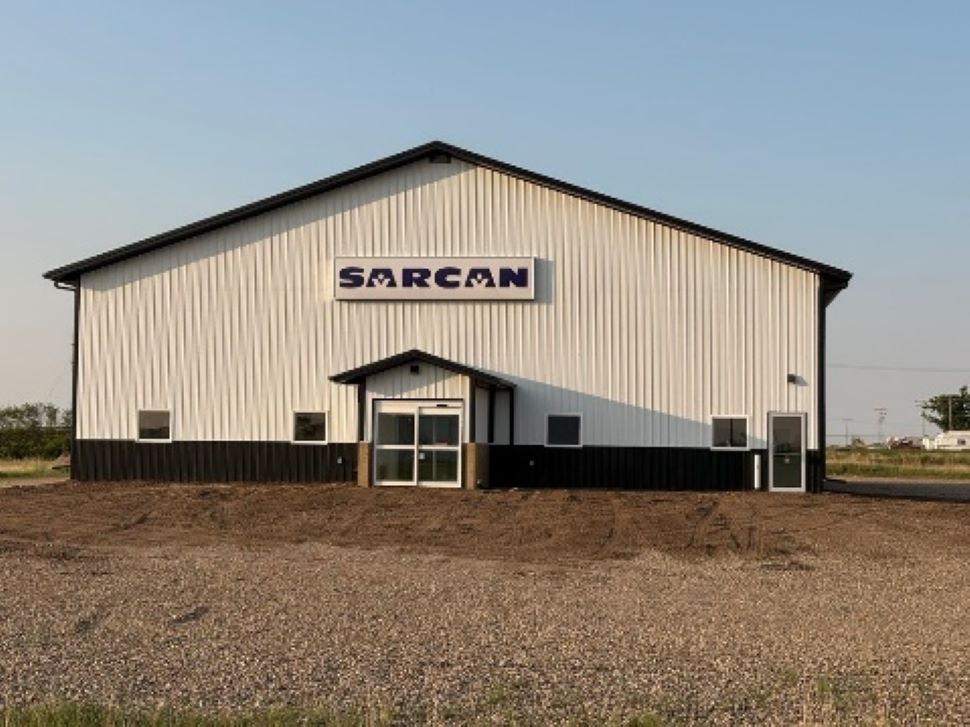SARCAN’s Estevan depot is more than just a drop-off point for recyclables; it’s a modern, efficient facility designed to support sustainability, improve customer experience and keep more materials out of the landfill.
Communications and culture coordinator Jane Hubbard-Richards says the new location includes more lanes to keep customers moving, ergonomic polyaspartic flooring made from recycled materials and automatic LED lighting to reduce energy waste. “We try and put automatic lighting in all of our new builds,” she said during a recent tour, adding that machines and lights only run when needed.
The building adds more than 2,500 square feet compared with the old depot and features a dedicated “Drop & Go” area to speed up service. “It doesn’t make sense to have a skip-the-line service if there’s a line,” Hubbard-Richards joked. “Now people can drop off their recycling quickly and easily.”
Behind the scenes, specialized flatteners help crush materials like aluminum cans and PET plastic bottles. SARCAN’s next-generation flatteners can compress materials at a four-to-one ratio, reducing the number of transport trucks on the road and cutting greenhouse gas emissions. Last year alone, SARCAN shipped about 4,500 trailers full of recyclables across Saskatchewan.
But what happens to your recycling after it leaves the depot? Hubbard-Richards explained that clear glass from SARCAN is sent to Moose Jaw, where it’s crushed and turned into reflective beads used in highway paint, while coloured glass heads to Alberta to become fibreglass insulation. Aluminum cans make the round trip from drop-off to store shelf in as little as six weeks, and PET plastic is transformed into everything from t-shirts to carpet fibre.
“Recycling is about contributing to a circular economy,” Hubbard-Richards said. “Materials get used, collected and turned into something new again and again.” Beer bottles, for example, can be refilled up to 14 times before they’re retired.
SARCAN also collects paint, electronics and batteries for other recycling programs, helping Saskatchewan remain a national leader in recycling rates. Hubbard-Richards said Saskatchewan recycles about 85 per cent of beverage containers, which is among the highest rates in the country.
The Estevan depot alone processed more than eight million containers last year, serving more than 30,000 customers. Since opening in 1988, the community has recycled more than 250 million beverage containers through SARCAN.
Beyond the environmental benefits, the new depot also creates local employment opportunities, typically employing nine to 12 people. “It’s countless how many lives have been impacted and how many careers have been built here over the years,” Hubbard-Richards said.
In the end, she said recycling is about more than bottles and cans. “It’s about making it easy, fun and something people want to do. You come in, you see a familiar face and you know you’re doing your part for the environment.”
